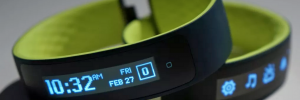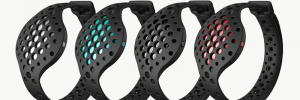Activity tracker giant, Fitbit, has been on the hot seat since filing to go public. Right off the bat, unsatisfied clients sued the San Francisco-based company, alleging that the activity tracker’s sleep tracking functions were falsely advertised and caused detrimental health effects. Then, Fitbit’s top competitor, Jawbone, launched not one, but two major lawsuits within two weeks against its chief competitor.
Last week, Jawbone alleged that Fitbit has actively poached talent from its chief rival over the past year. Additionally, Jawbone claims that these five members of staff passed on trade secrets before leaving, resulting in intellectual property theft. Now, Jawbone has filed another lawsuit against its rival, for patent infringement. The complaint requests the court to prohibit Fitbit from producing certain health trackers because allegedly its rival has breached a patent for “a wellness application using data from a data-capable band.”
Jawbone furthermore claimed that it’s elevating the complaint to the International Trade Commission, an action that could possibly detain Fitbit’s shipments to the United States at the border. A similar halt on shipment occurred recently during the well-documented legal squabble between Samsung and Apple.
Although Fitbit CPO Marty Reaume admitted to poaching Jawbone staff, he dismissed claims of stealing trade secrets. “We are unaware of any confidential or proprietary information of Jawbone in our possession and we intend to vigorously defend against these allegations,” he said. Jawbone’s lawsuit coincides with their rumoured financial difficulties, despite the company asserting that this is untrue.
Both electronic makers have released new health trackers in the last few months. As the market for fitness trackers grows, the competition will no doubt increase for both moguls.




